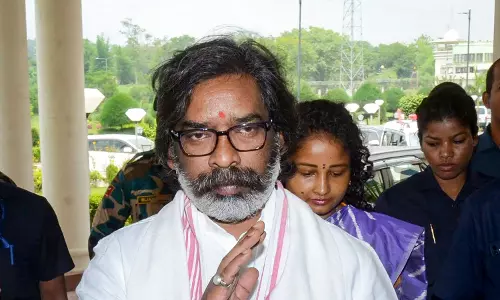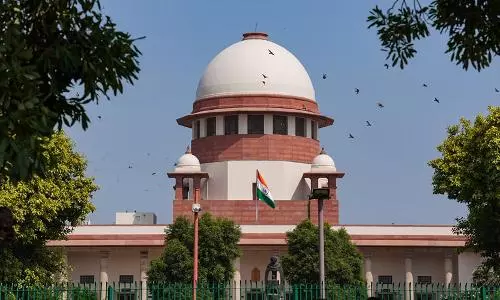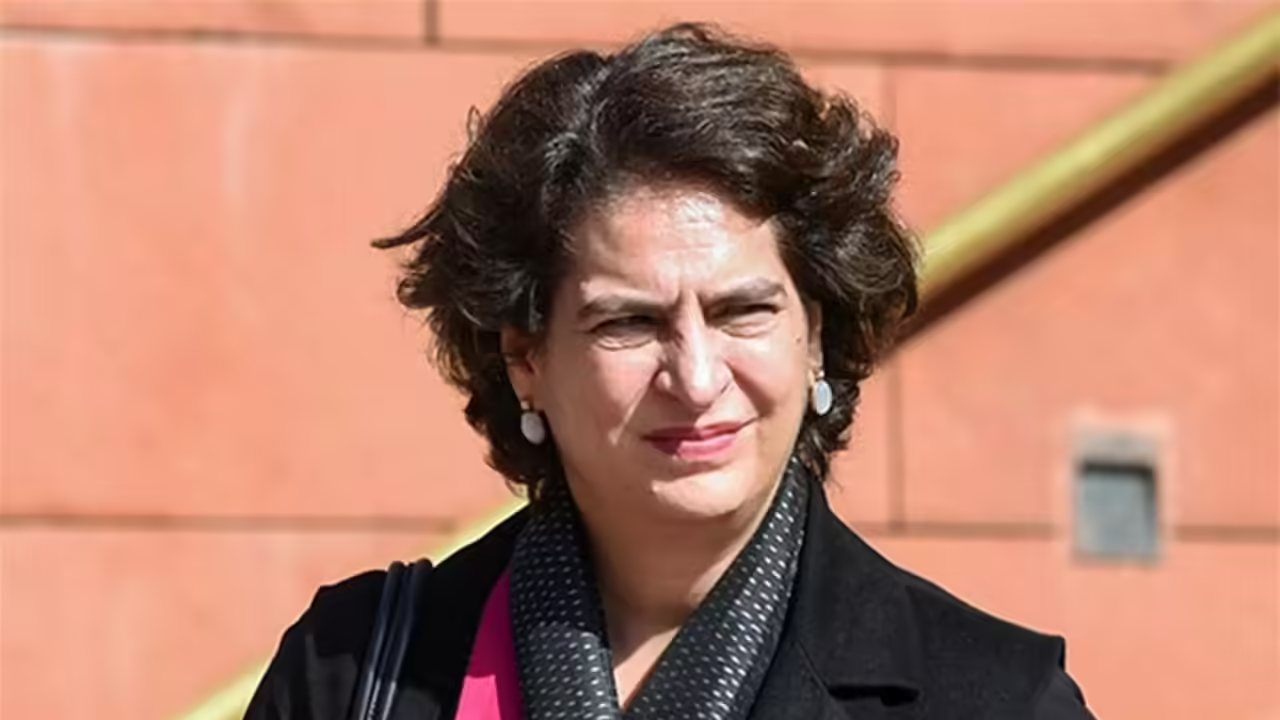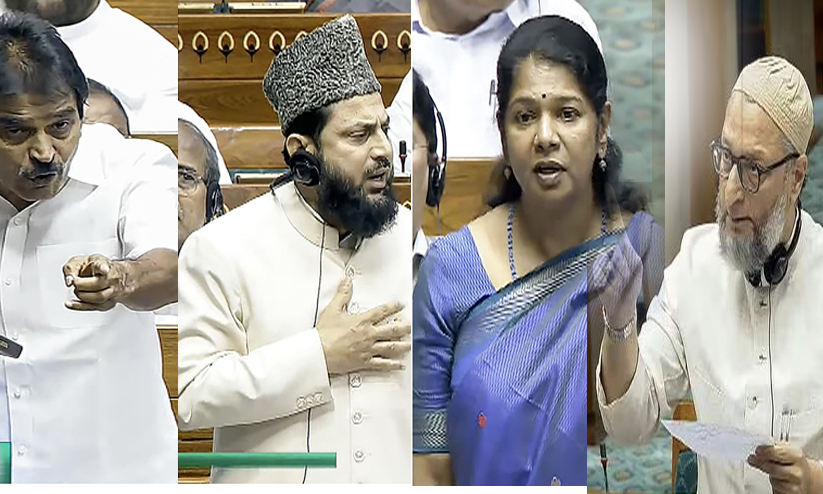
Waqf Bill: Owaisi calls BJP enemy of Muslims, infringing on Muslim personal laws
text_fieldsThe Union government has introduced the Waqf (Amendment) Bill, 2024 in the Lok Sabha today, sparking intense opposition from several INDIA bloc MPs. Critics have labelled the Bill as ‘divisive,’ ‘anti-Muslim,’ and ‘unconstitutional,’ highlighting the deep political and social rifts it has stirred.
The proposed legislation seeks to amend the Waqf Act of 1995, aiming to introduce notable changes, including the inclusion of Muslim women on Waqf boards and implementing stricter verification processes before a property can be designated as a Waqf asset. Despite these changes, the All India Muslim Personal Law Board (AIMPLB) has condemned the Bill as ‘unacceptable,’ and INDIA bloc parties have signalled their intention to oppose any amendments to the Waqf Act.
The introduction of the Bill in the Lok Sabha was marked by a strong reaction from opposition members, who have criticized it as an attempt to undermine the Waqf system. Opposition MPs argue that the Bill represents a direct attack on constitutional principles and the autonomy of Muslim institutions. They have accused the government of using the Bill to further political interests, particularly in light of upcoming state elections in Maharashtra and Haryana.
In Rajya Sabha, the opposition's frustration extended beyond the Waqf Bill. Members staged a walkout after the Chair refused to allow a discussion on the disqualification of wrestler Vinesh Phogat from the Paris 2024 Olympics.
Samajwadi Party chief Akhilesh Yadav accused the government of using the Bill as a pretext to facilitate land sales benefiting BJP members. RSP MP NK Premachandran criticized the Bill as a dismantling of the Waqf system and a potential constitutional violation. Similarly, Asaduddin Owaisi condemned the Bill as a divisive measure aimed at undermining Muslim institutions.
Union Minister Lalan Singh defended the Bill, asserting that it is not intended to interfere with the functioning of mosques or target Muslims. He emphasized that the Bill’s goal is to enhance the efficiency of the Waqf administration. However, this defence did little to quell the opposition’s criticism.
MP Supriya Sule from the NCP raised procedural concerns, noting that many MPs were first informed about the Bill through media rather than official channels. She has called for either the withdrawal of the Bill or its referral to a standing committee for further scrutiny. DMK MP Kanimozhi also criticized the Bill, alleging it violates Article 30 of the Constitution, which protects the rights of minorities to manage their institutions.
Congress MP K.C. Venugopal denounced the Bill as a fundamental attack on the Constitution and a misuse of power targeting minority communities. He accused the government of using the Bill to influence upcoming state elections rather than addressing pressing national issues like unemployment and inflation.
The Bill proposes significant changes to the existing framework. One of the most notable alterations is the omission of Section 40, which grants waqf boards the authority to determine whether a property is classified as waqf. Instead, the Bill designates the district collector as the arbitrator for deciding if government properties should be classified as waqf. This change has raised concerns among various Muslim organizations, who argue that the new provisions could undermine the status and protection of waqf properties.
The proposed legislation also seeks to rename the 1995 Waqf Act to the Unified Waqf Management, Empowerment, Efficiency and Development Act, 1995. It aims to redefine "waqf" more explicitly, requiring that individuals creating waqfs must be practising Muslims for at least five years and possess ownership of the property in question. Additionally, the Bill introduces new sections that set out conditions for the creation of waqfs, emphasizing that waqfs must be established by lawful owners who are competent to transfer or dedicate the property.
A key feature of the Bill is its emphasis on protecting the inheritance rights of women. It specifies that creating a "waqf-alal–aulad" (a type of waqf dedicated to descendants) should not result in the denial of inheritance rights for heirs, including women. Furthermore, the Bill mandates that all waqfs registered under the previous Act must provide detailed information on a central portal within six months of the new Act’s commencement.
To address concerns about potential misuse, the Bill stipulates that any government property identified or declared as waqf property, either before or after the new Act comes into force, will not be considered waqf. If there is any dispute regarding whether a property is government property, the district collector will have the authority to make a determination and report to the state government.
The proposed amendments also aim to reform the composition of the Central Waqf Council and state Waqf boards by ensuring the representation of Muslim women and non-Muslims. Additionally, the Bill calls for the establishment of a separate Board of Auqaf for specific Muslim communities, such as Boharas and Aghakhanis.
Union Minister Kiren Rijiju has articulated that the changes are intended to enhance the effectiveness of the waqf administration. The 1995 Act, he argues, has not been sufficiently effective in improving waqf management despite previous amendments in 2013. The Bill reflects recommendations from various reports and consultations, aiming to address lingering issues related to waqf property management and legal definitions.
However, the proposed legislation has faced strong opposition from several Muslim organizations. The All India Muslim Personal Law Board (AIMPLB) and Jamiat Ulama-i-Hind have expressed concerns that the amendments could alter the nature and status of Muslim waqf properties, potentially facilitating their misuse or seizure.
These groups argue that the changes could infringe upon the constitutional and Shariat protections of waqf properties, undermining the authority of waqf boards and Islamic scholars in managing these endowments.






















